Manchester's LGBTQ history: Photos showcase 'iconic moments'
- Published
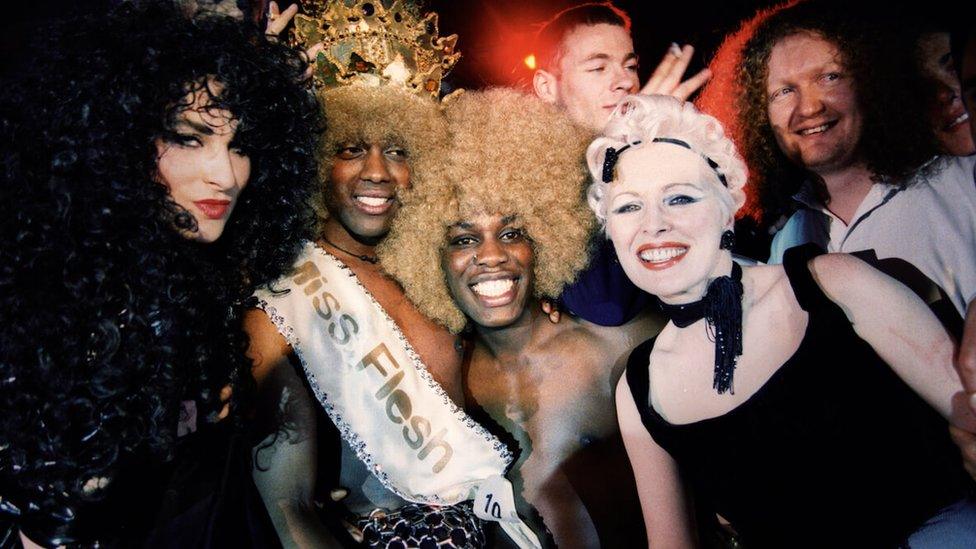
Flesh arrived "during a turbulent time during the club's and city's history", the exhibition's organisers say
Photographs capturing "two iconic moments in Manchester's vibrant history" have gone on show in the city.
Together As One includes images from legendary club The Hacienda's Flesh night in the 1990s and from protests against Section 28 in 1988.
They showed "important chapters" which helped to pave the way for today's "thriving LGBTQ+ community", organisers British Culture Archive (BCA) said.
It added that they also showed how Manchester "has pushed boundaries".
'Full of energy'
Flesh, a midweek club night, was launched in 1991 by The Hacienda's entertainment manager Paul Cons and promoter Lucy Scher.
A BCA spokesman said it arrived "during a turbulent time during the club's and city's history" as a number of "heavy gang-related incidents and laddish clientele" meant the venue was losing its appeal.
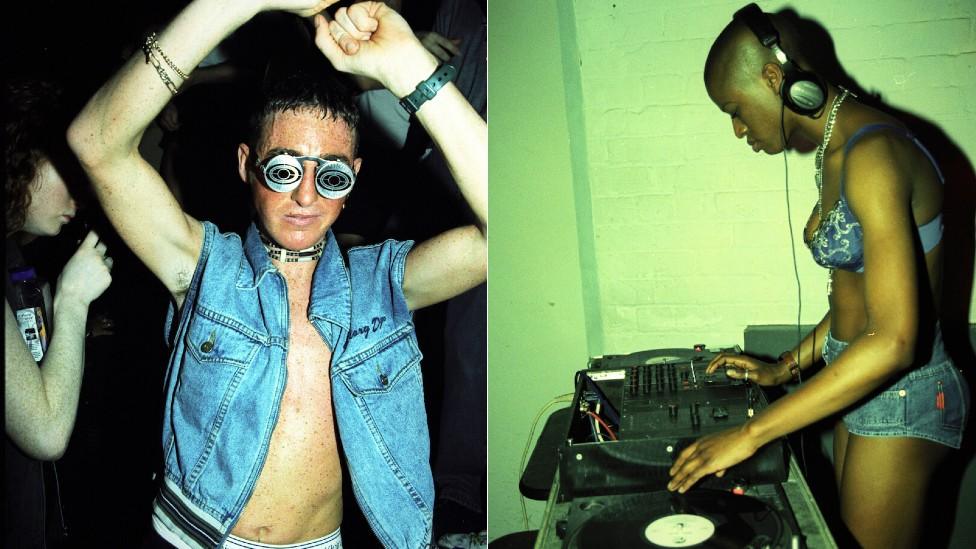
Flesh saw The Hacienda get its first female resident DJs
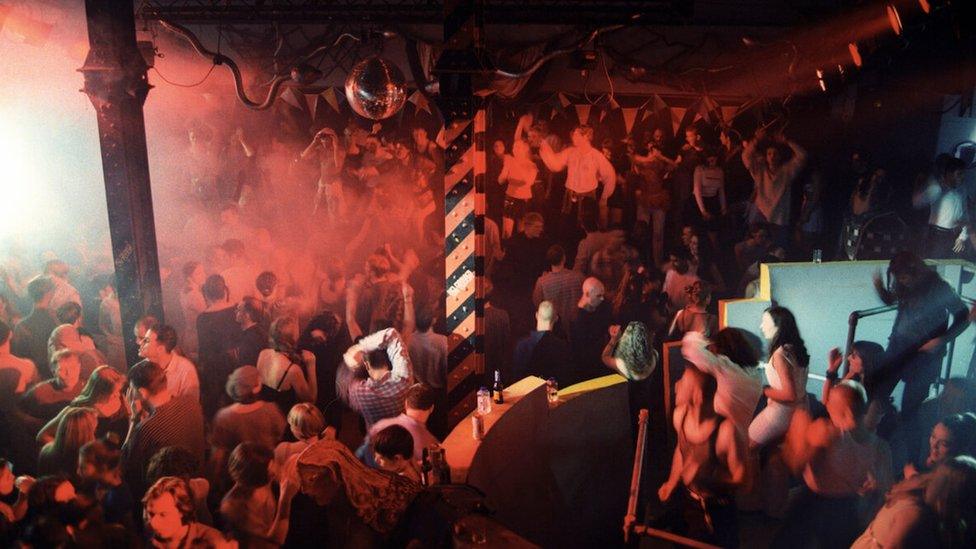
Jon Shard says the night was "always packed and full of energy"
Jon Shard, who was the night's in-house photographer, said its "carnival atmosphere" and pioneering approach, which saw the first female resident DJs at the club, meant it was very different from what went before.
"My friends and people around me would be talking about it all month," he said.
"People came from all over... it was always packed and full of energy.
"It was one of the most important nights there - probably the biggest gay night in Europe."
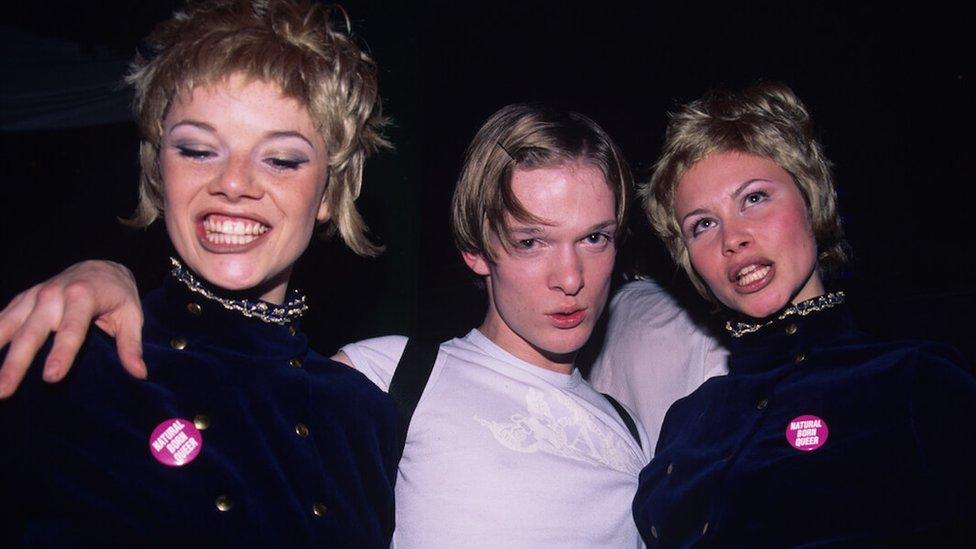
Shard, who was Flesh's resident photographer, says he went to "every single one"
He said he was at "every single" Flesh and remembers it being "really colourful".
"Everyone would spend two or three days working out what they were going to wear for it," he added.
Flesh DJ Kath McDermott, who was a student at the time, said she remembers Shard being as "keen as mustard and came to talk to us about why we should let him take some pics at Flesh".
She said despite being "even younger than me, [he] absolutely slayed it", adding that he was an "absolute darling".
'Happy and vibrant'
The night launched three years after the protests against Section 28.
The clause was part of the Local Government Act and was brought in to "prohibit the promotion of homosexuality by local authorities".
The BCA spokesman said the clause was "an attempt to suppress the gay community at a time when it was already struggling to deal with the Aids epidemic and the backlash... fuelled by the media".
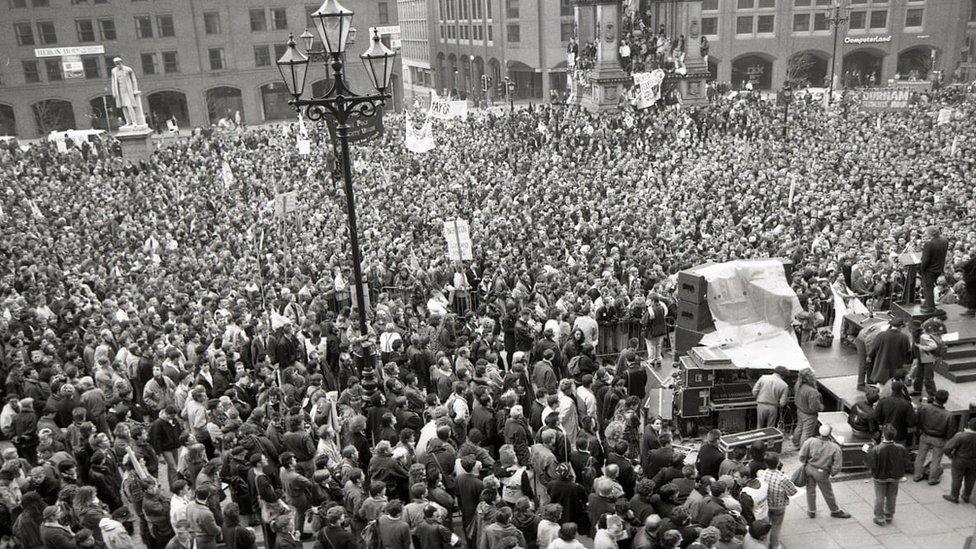
The Clause 28 protest march culminated in about 20,000 people gathering in Manchester's Albert Square
On 20 February 1988, three months before the clause came into force, a protest was held in Manchester which saw more than 20,000 people take to the streets.
The spokesman said the march, which culminated in Albert Square, was "one of the largest LGBT demonstrations ever held in the UK".
Peter J Walsh, who had become known for documenting the city's nightlife, was one of the few to capture what happened.
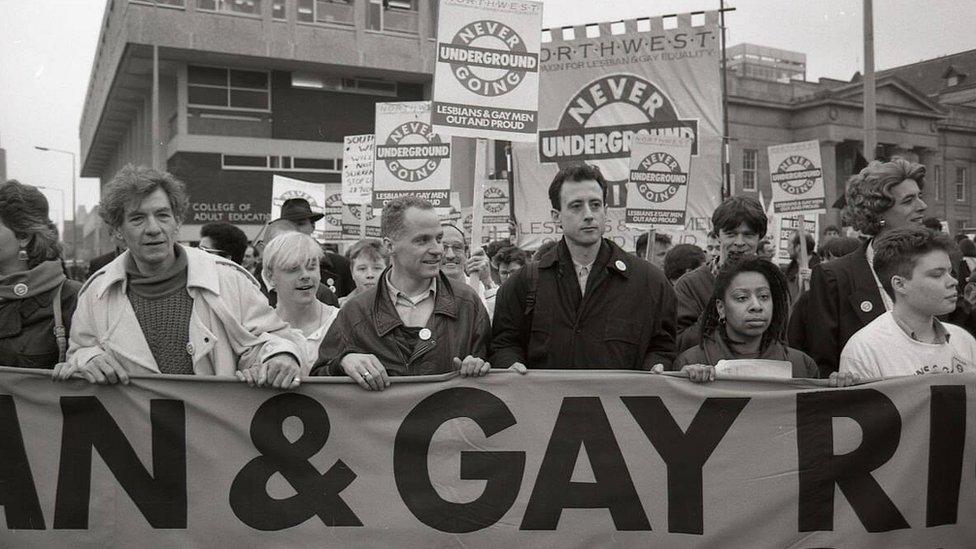
Actors Sir Ian McKellan, Michael Cashman and Gary Halles and campaigner Peter Tatchell took part in the march
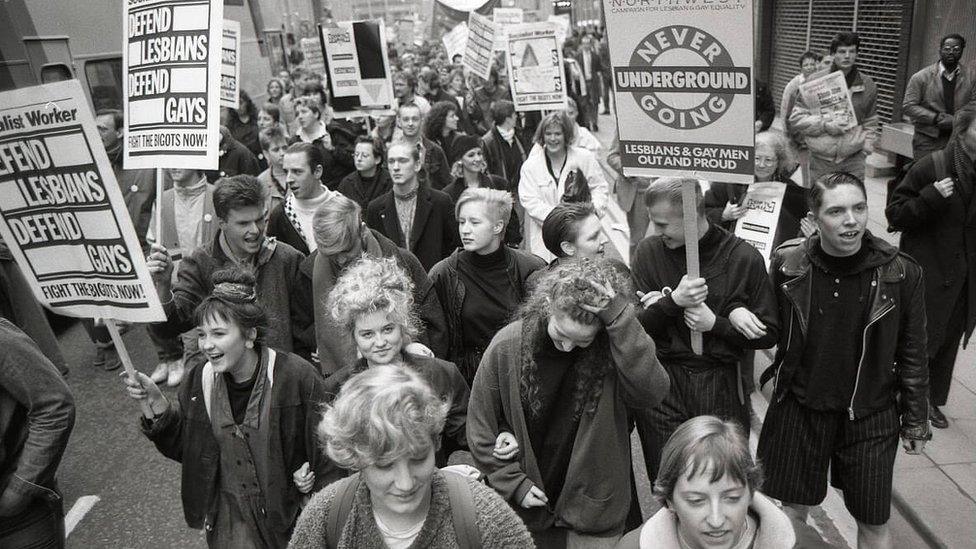
The protest was held three months before Section 28 came into force
He said it was "loud, happy and vibrant".
"The starting point was on Oxford Road, by the Poly, and the participants seemed to go on as far of the eye could see," he said.
"The country had been under Thatcher's rule since 1979 and people were determined to fight back against this law.
"The left wing council of Manchester welcomed the marchers and stood with them in solidarity."
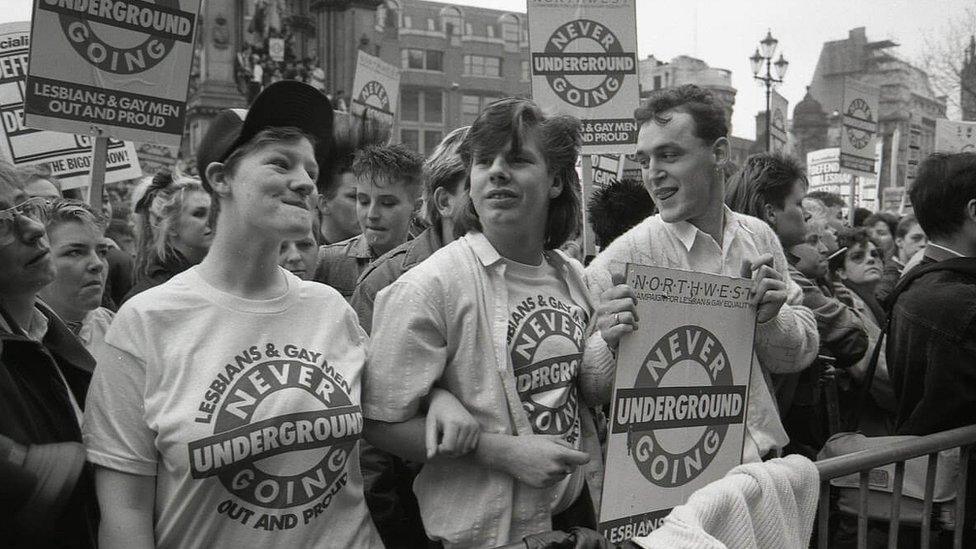
Walsh says he remembered the march being "loud, happy and vibrant"
He added that the city's LGBTQ communities felt their "civil liberties were under attack by Thatcher and we were prepared to stand shoulder to shoulder with them and say enough is enough".
The clause, which never led to any successful prosecutions, was eventually repealed in 2003, external.
Together As One is part of the Summer of Pride programme at The Refuge in Manchester's Kimpton Clocktower Hotel until 30 September.

Why not follow BBC North West on Facebook, external, Twitter, external and Instagram, external? You can also send story ideas to northwest.newsonline@bbc.co.uk, external